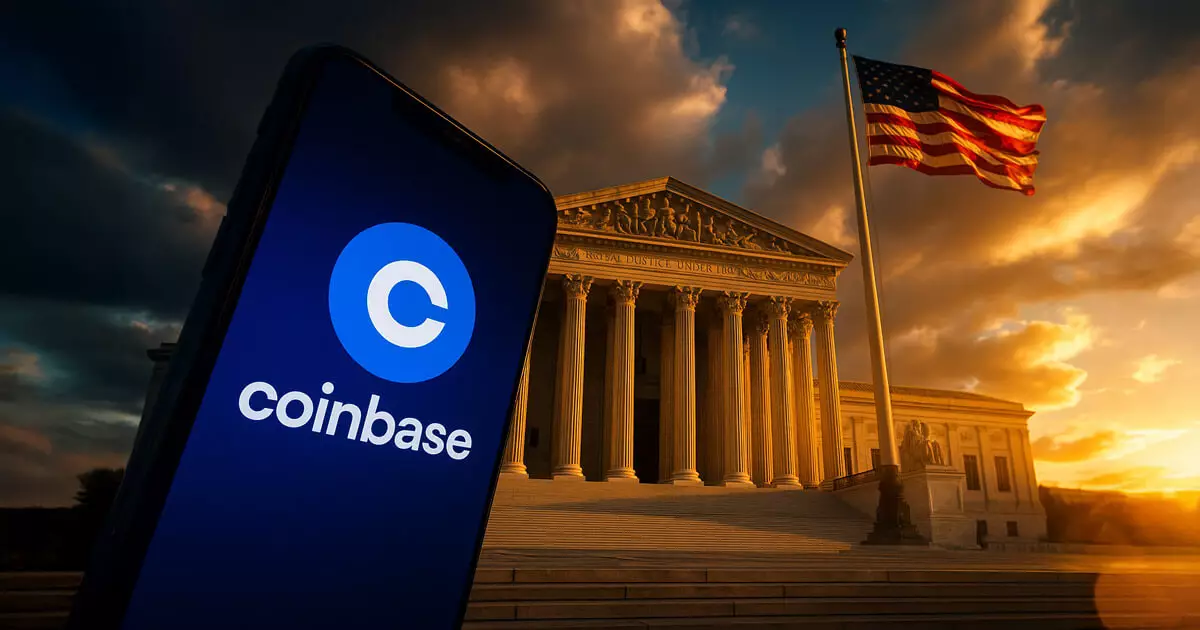In a significant development, the U.S. Supreme Court has handed a decisive blow to individual privacy rights within the realm of cryptocurrency. By refusing to hear the case of Harper v. Faulkender, the Court effectively endorses a lower court’s ruling that allows the IRS to access vast amounts of user data from crypto exchanges like Coinbase without the need for a traditional warrant. This decision marks a pivotal moment, signaling that the government’s appetite for digital financial information is no longer constrained by constitutional privacy protections, especially within the context of third-party financial services.
This legal occurrence is nothing short of a power consolidation. It cements the IRS’s authority to demand user data through broad and sweeping measures, effectively removing the shield of privacy that many users believed was intrinsic to their financial activities. The Court’s choice not to intervene suggests a tacit acceptance that in the digital age, the traditional “expectation of privacy” has diminished—particularly when information has been voluntarily shared with third parties. This outcome champions a paradigm in which financial data stored on centralized exchanges is treated as accessible to government scrutiny, akin to data stored with banks, thus expanding state oversight into a sphere that was once considered more private and insulated.
Legal Foundations and the Erosion of Privacy Protections
The backbone of this ruling is rooted in the “third-party doctrine,” a legal principle from the pre-digital era, which posits that individuals relinquish certain privacy rights when sharing information with third parties such as banks or, in this case, crypto exchanges. The IRS’s pursuit began with a 2016 summons demanding transaction records for U.S. users who engaged in large crypto transactions—over $20,000—during a two-year window. James Harper, a Coinbase user, challenged this summons, asserting that it constituted an unreasonable search and violated his Fourth and Fifth Amendment rights. His primary argument was that the government was conducting an unwarranted fishing expedition by requesting comprehensive user data without specific suspicion of wrongdoing.
The courts, however, relied heavily on the third-party doctrine, asserting that users who entrust their information to Coinbase for trading or storage diminish their privacy protections. The First Circuit upheld the IRS’s authority, reasoning that crypto exchanges are akin to banks, which hold detailed records of their clients’ transactions and, thus, are subject to government access. Moreover, the court’s reliance on existing financial record-keeping regulations further cemented the perception that crypto data is no longer shielded from government reach.
The Supreme Court’s rejection of Harper’s appeal indicates an alignment with this view—recognizing that the digital age demands a revision or at least an expansion of privacy doctrines, but ultimately choosing not to intervene. Such a stance reveals a clear message: in the eyes of the law, sharing your financial activity with a third party exposes you to reduced privacy protections.
The Broader Implications for the Crypto Ecosystem and Personal Privacy
This court decision’s broader impact is profound. For crypto users, especially those engaged on centralized exchanges, it signifies a further erosion of privacy. With the government’s authority to access transaction data, the line between traditional financial institutions and digital assets becomes increasingly blurred. This creates a landscape where privacy is a privilege, not a right, when dealing with regulated entities.
The ruling fuels the already growing skepticism around centralized exchanges like Coinbase, encouraging a shift towards decentralization. Self-custody wallets and decentralized exchanges (DEXs)—where users retain control over their private keys—represent a form of resistance against surveillance and overreach. However, such measures are not foolproof; regulatory pressure is likely to extend elsewhere, potentially targeting or complicating decentralized solutions indirectly.
From a policy perspective, this decision underscores a concerning trend: the government’s commitment to monitoring digital assets at the same level as traditional banking. It suggests a future where privacy rights are continually sacrificed for purported benefits of compliance and tax enforcement. While combating tax evasion is legitimate, the broader societal costs include a chilling effect on financial privacy and innovation. This ruling signals that, in the eyes of the law, digital assets aren’t exempt from the state’s reach, and users must accept the concomitant surrender of some privacy rights to participate in the financial system.
Reevaluating Privacy in a Surveillance-Driven World
At its core, the ruling symbolizes a fundamental shift in the legal landscape—one that favors government oversight over individual autonomy. Privacy advocates decry that the erosive trend diminishes the constitutional protections intended to safeguard personal liberties. Yet, this is not merely about law; it’s about societal values in an era where technological advancements challenge the very notion of personal privacy.
The digital age compels us to question whether traditional privacy frameworks are still relevant or adequate. The courts’ reliance on the third-party doctrine illustrates a tendency to cling to outdated legal principles that no longer fit the realities of modern financial transactions. If anything, the debate should now pivot towards crafting laws that recognize the unique attributes of digital assets and the rights of users to maintain control over their data. Essentially, this is a clash between innovation and regulation—where the latter often edges out privacy to maintain order and collect revenue.
In the end, the Court’s decision reveals an acceptance that the government’s priorities—tax enforcement and surveillance—are increasingly encroaching on individual freedoms. Crypto enthusiasts and privacy-conscious individuals need to recognize that in the current legal climate, control over one’s financial data is tenuous at best, and more robust solutions—possibly embracing decentralization—are essential to safeguard personal liberty in the digital era.

